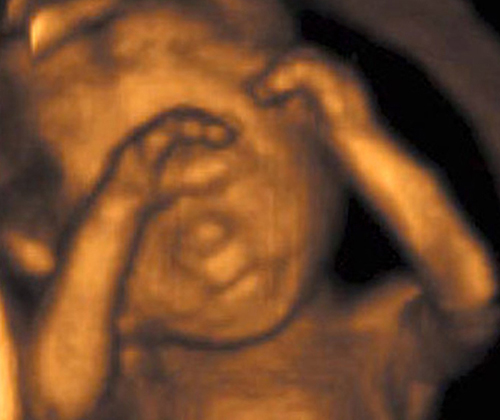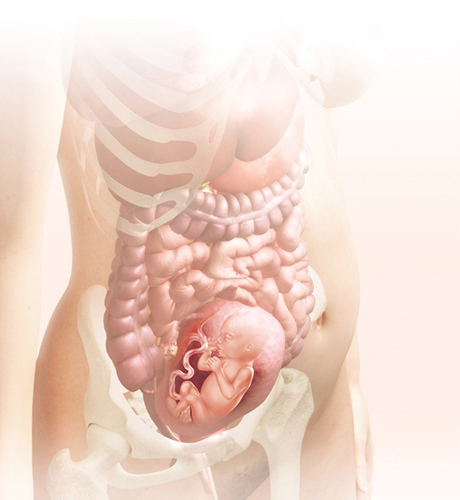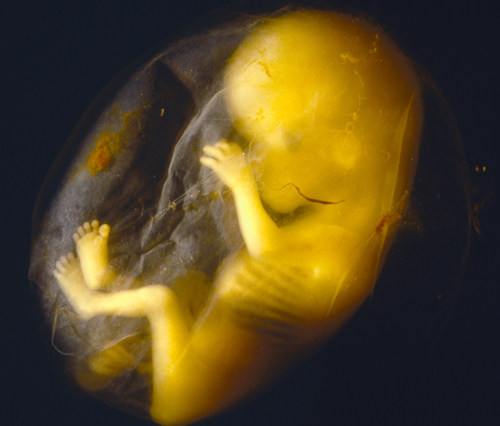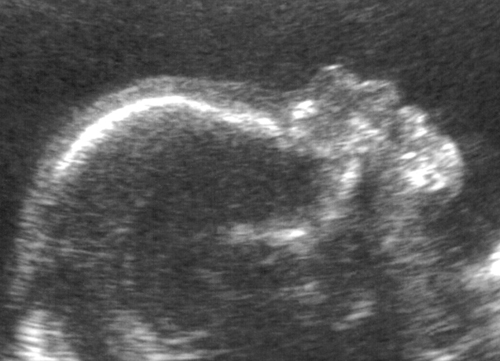You are 19 Weeks Exactly 147 days to go…
You’ll be getting advice from all quarters, but there’s one person you might want to listen to—your mother.
Your baby today
Your baby has highly flexible joints, enabling her to raise her
arms high. This is because her bones are first made of cartilage, which
is soft and flexible. Gradually, the cartilage is being replaced by
calcium-containing bone.

Whether or not you’re already close to your mother,
being pregnant is likely to affect your relationship with each other.
Many women feel naturally closer to their mothers as they go through
this significant life event, turning to them for help and reassurance
during the course of pregnancy and wanting them to be there in the days
and weeks following the birth of the baby.
It’s normal for a
mother to respond to her daughter being pregnant by being very
protective, so expect a few more phone calls than usual. Your mother is
bound to offer lots of advice. Whether or not you take it all in,
listen—you may just find some of it useful.
Your pregnancy is bound to trigger lots of memories for your mother of her own pregnancies, so expect to hear many stories of when you were a baby.

… Your body
Taking the strain
There are a number of changes in your body during pregnancy that impact how you can exercise and how your body moves:
The increased weight
of your baby, placenta, extra blood, enlarged uterus, and breast tissue
can cause stress on your body, and most notably on your skeleton.
Postural changes due to changes in the center of gravity can increase your chances of developing hip, back, and knee problems.
Relaxin (see Stretching safely),
a pregnancy-related hormone that affects the ligaments, can increase
flexibility and result in improper alignment of the spine and pelvis.
Effective
and safe exercises are the most efficient way of maintaining and
improving your posture and minimizing the stress on your body (see A Safe Workout for a great second trimester workout).
Regular exercise (especially weight bearing exercise such as walking, and using weights—see A Safe Workout) generally improves the bone density of your skeleton.
Your 20th Week
In the next few days, you
might feel your baby’s movements for the first time. The little flutter
can be such a tiny sensation that many women write it off as gas. But
what a wonderful moment when you realize the truth! If you want to find
out the sex of your baby, it could be revealed on the ultrasound scan
you have this week.
NOTE
Those butterflies in your stomach may be more than just gas

You are 19 Weeks and 1 Day 146 days to go…
If you want to know whether you’re having a boy or a girl, this is the week you might be able to find out.
Your baby today
This image shows the entire baby lying within the amniotic sac.
Every finger and toe, and even the lower ribs in the chest, can be seen.
Although the head is still quite large, the limbs are much more in
proportion with the body.

You’ll have a scan this week
and may be given the opportunity to find out the sex of your baby.
Identifying the gender is dependent on a number of factors, including
the expertise of the sonographer, the quality of the equipment being
used, the position of the baby and, specifically, of the legs, which
could obstruct the genitals. Even if all of these factors are favorable
and the genitals can be seen, there is an error factor, so the
information given is never 100 percent accurate. You may be able to
identify the genitals yourself as you’re watching the screen, so if you
don’t want to know, it’s advisable to look away.
If you have an amniocentesis test and want to know the sex of your baby, it can be identified with close to 100 percent accuracy.
This 2D scan
is a close-up of the baby’s profile, showing the bright frontal bone of
the forehead, the nose, lips, and chin. The nasal bone appears as a
bright area at the top of the bridge of the nose.

Finding out the sex of your baby
Is it a good idea to find out the sex of your baby before he (or she) is born?
Yes…
Being able to call your baby “he” or “she” rather than “it” or “the baby” may help you and your partner to bond with him or her.
Knowing the sex means you can choose a name before the big day, although bear in mind that it’s not guaranteed to suit him or her.
Decorating the nursery and buying baby clothes may be simpler.
No…
Not knowing is a huge motivator
during labor and birth for many women, and the excitement of finding
out right at the end can help keep you focused through all the stages of
labor and delivery.
Remember that unless you had an amniocentesis test or CVS test (see Amniocentesis),
there’s no way of knowing your baby’s sex for certain. Sonographers can
(and do) get it wrong, so don’t get too attached just yet to the name
you’ve chosen.